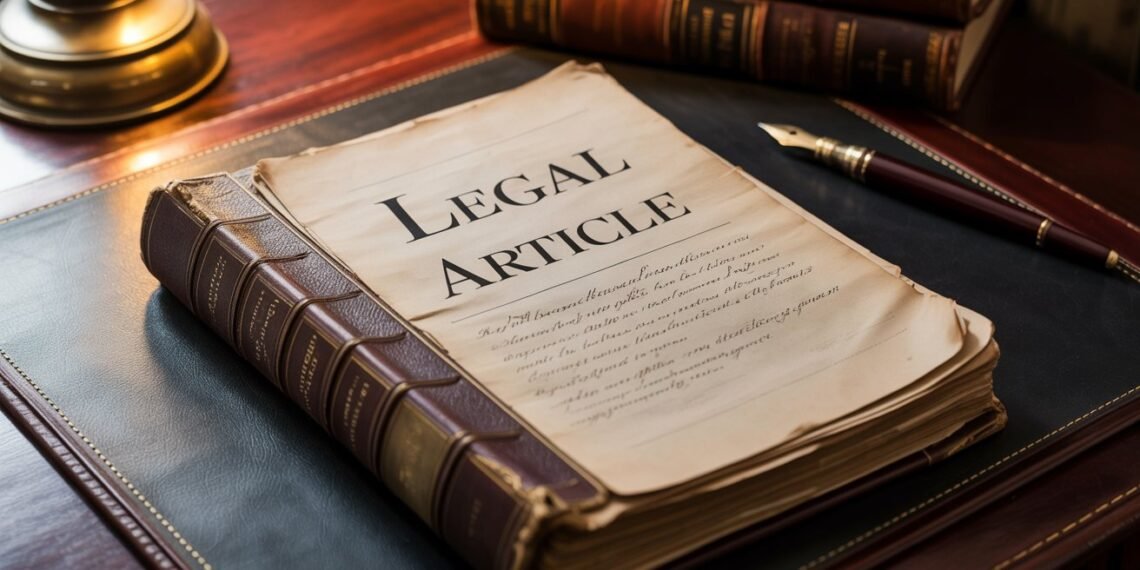Author: Puja Biswas
With the introduction of Advocates (Amendment) Bill,2025 the Indian legal profession is set for a radical shift. This legislative effort seeks to enhance the image of the profession by remodling the Advocates Act, 1961. Addressing concerns of international relevance, this initiative seeks to enhance the prevailing trust, accountability, and overall efficiency of the system. There is hope that the Bill ensures the legal ecosystem becomes more resilient and just, however that has not stopped the members of the legal community from debate and criticism.
The Bill intends to enhance the quality of legal education so that they can equip aspiring lawyers with skill sets necessary for thriving in a dynamically evolving global legal market. The Bill seeks to enhance the professional competence and ethical practices of advocates by enforcing stricter disciplinary policies and fostering a culture of accountability. These changes seek to incorporate various forms of legal practice into the officially recognized system of regulation, thus reflecting the reality of legal practice. By reducing backlogs and enhancing the credibility of the legal system, these reforms indirectly aim to improve the efficiency of the justice delivery system for the ultimate advantage of the populace.
The proposed changes which Deconstruction of Modern Legal Practice touches upon make amendments some key aspects, however it’s the changes they suggested that have truly caused a stir. Perhaps the most important ones are:
- The most visible change concerns the scope of the phrase legal practitioner. Alongside advocates operating in the traditional courts, the bill now includes corporate lawyers and in house counsels as well as legal personnel working with statutory bodies, businesses, and even foreign law firms, both private and public. This change seeks to domesticate and control more of the legal profession.
- One of the striking amendments under registration with Bar Association is that every single advocate who practices before any court, tribunal or other relevant body is required to register with the Bar Association of the region where they mostly practice. This attempts to enhance local and improve the recording processes.
- Section 35A is a controversial section that prevents advocates and bar associates from fomenting or participating in strikes or boycotts which impact the courts. All such acts will be deemed professional misconduct warranting disciplinary measures. This aims to crub disruption of judicial processes.
- The Legal Profession Bill contains significant provisions aimed at improving the quality of legal education. It includes the establishment of an Advisory Council for BCI pertaining to professional conduct, education, and legal research. Moreover, it supports the AIBE (All-India Bar Examination) which is mandatory for practicing advocacy suggesting uniform eligibility criteria along with other adequate qualifying assessments.
- Defenders sentenced to a term of imprisonment of three years or longer will be removed from the role of the State Bar Council. There is a waiting period after which they may re-enroll, but only after meeting the conditions set by the BCI.
In conclusion An audacious attempt to guide in a new era for the Indian legal profession is the Advocates (Amendment) Bill, 2025. A forward thinking outlook is reflected in its emphasis on higher professional standards, better legal education, and a more expansive definition of legal practice. However, the Bill’s contentious provisions especially those deemed to violate the right to protest and the independence of the Bar need careful thought and additional discussion. To make sure that the amendments serve to strengthen rather than compromise the integrity and effectiveness of India’s legal system, it will be crucial to continue consultation with all stakeholders as the Bill moves forward and to be willing to amend controversial clauses.



